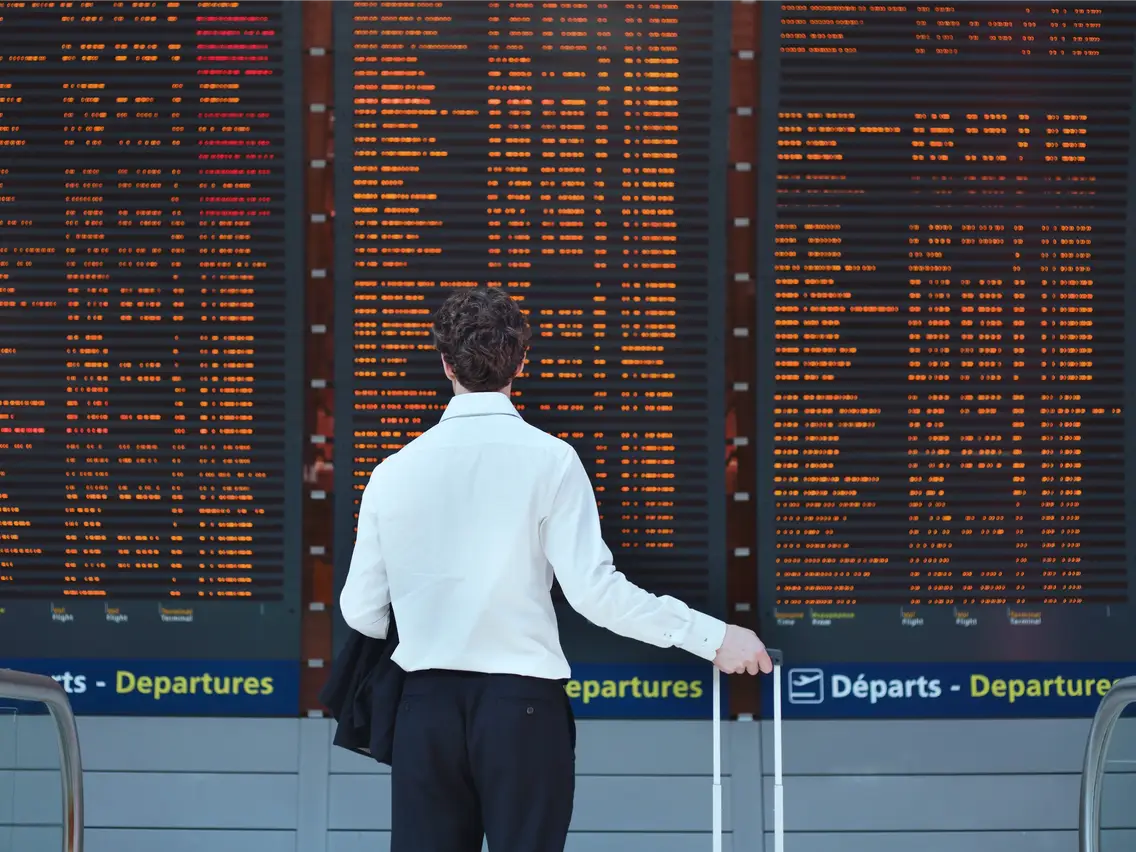
One of the situations we had to face during the pandemic was tons of delayed or canceled flights, and other complications while traveling. Even though things are under control with everything around the pandemic, they aren’t exactly back to normal. That is why it is essential to keep in mind a couple of things when traveling by plane. The first thing is always, before booking a flight, check the flight cancellation policy with the airline. Many of them will try to offer you a discount coupon, but you can also ask for a refund.
What are the main causes of cancellations or delays?
These happen due to a number of problems – weather conditions, lack of manpower, reduced capacity – flight delays and cancellations can become a big hassle. While you may not be able to avoid this completely, there are steps you can take to prevent major disasters.
As for traveling, try to give yourself maximum flexibility – especially since a pandemic is still capable of disrupting your travel plans. To protect yourself from unexpected situations, consider these useful tips…
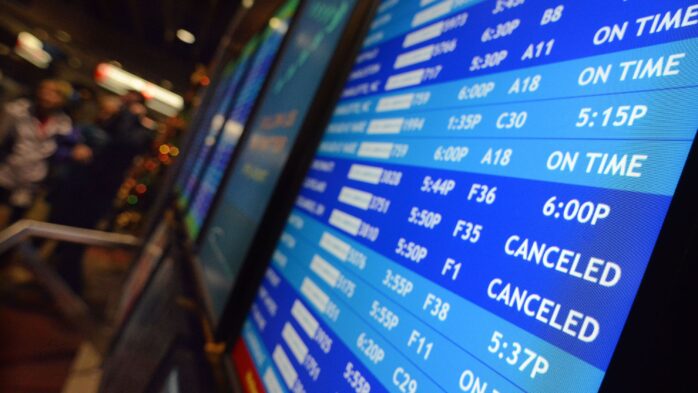
1. Get a refund for a plane ticket if that is your best option
Sometimes when delays and cancellations occur, you can get a refund. In most cases, if the flight is canceled for any reason, and the passenger decides that he does not want to book the same again at that airline, the passenger is entitled to a full refund. For example, if a passenger is traveling on SAS (Scandinavian Airlines) to or from Norway, Denmark & Sweden to any other destination in the world, and his/her flight gets abnormally delayed, canceled without any solid reason, overbooked or has denied boarding, the said passenger is entitled to go for a SAS claim for delayed flight or uninformed cancelation from the international carrier, with the assistance of an expert in claim services, like ‘Click2Refund’.
If there is a ‘significant delay’, the airline should give you a full refund, although it could resist this because the term ‘significant’ is quite vague. That is why before booking a flight, check the flight cancellation policy with the airline. Many airlines will try to offer a discount coupon for the next flight, but you can ask for a refund – especially if you can specify the rules for their refund. It is the passenger’s right to claim the compensation, if reaching out to the airlines is not fruitful, you can take assistance from the experts such as AirAdvisor, click here to know more.
2. Act fast
When a flight is canceled or delayed, do everything you can to talk to the agent as soon as possible. For example, if you’re at the airport and waiting in line to talk to a ticket sales agent, use that time to reach the airline through their app or phone. Also, use the internet to track alternate flight schedules. If by any chance you get confused by everything happening so fast, have in mind that there are agencies that can help you in this process. Agencies like Flightright are constantly working to ensure that passengers claim their rights and get duly compensated whenever their flights are delayed or canceled. Contact them, and rest assured your case will be settled in the best way possible.
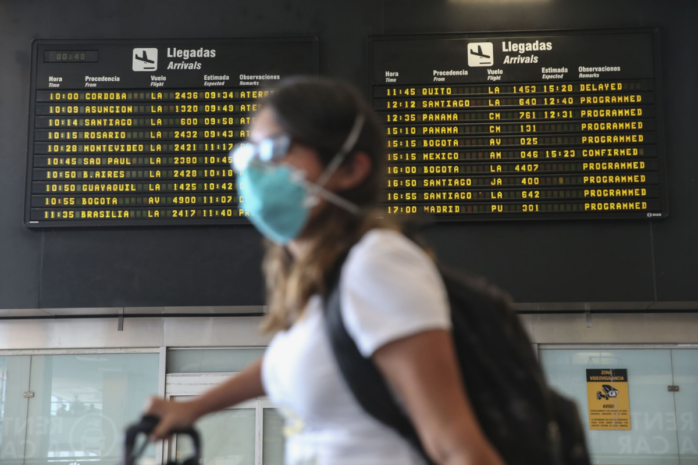
3. Whenever you can, buy direct flights
When you choose less transferres, you won’t have to worry about being late to your connecting flight. However, it is true that direct ones can be more expensive. In this case, with all the uncertainty with the trip, a little more money will come to you as a piece of mind, knowing that you are safe from anything unexpected that can happen regarding your flight being on time. Rather look for flexible pricing.
5. Book seats together if you are traveling with friends or family
To ensure that your escort seats are not scattered around after a flight is canceled, book all seats as part of one booking, as you are more likely to have a second booking for another flight and be all together.
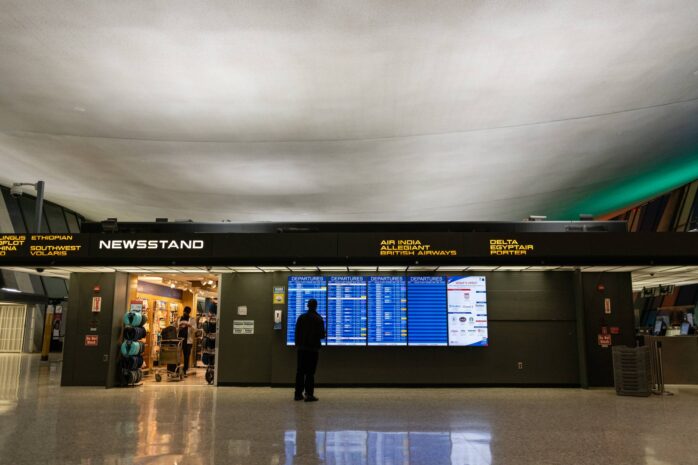
6. Allow more time between connecting flights
As you probably already know, a general rule is to give yourself up to 90 minutes to connect with domestic flights and as much as two hours for international flights. However, it is better to have a longer rest – that is, about three or four hours. Of course, this prolongs your travel time, but think of it as a form of travel insurance, especially if you have to take a flight that only goes a few times a day.
7. Avoid checking your luggage
Checked baggage can play a big role in whether you will be able to book another flight again, especially in the short term. In addition, it helps you avoid crowds on the luggage belt.
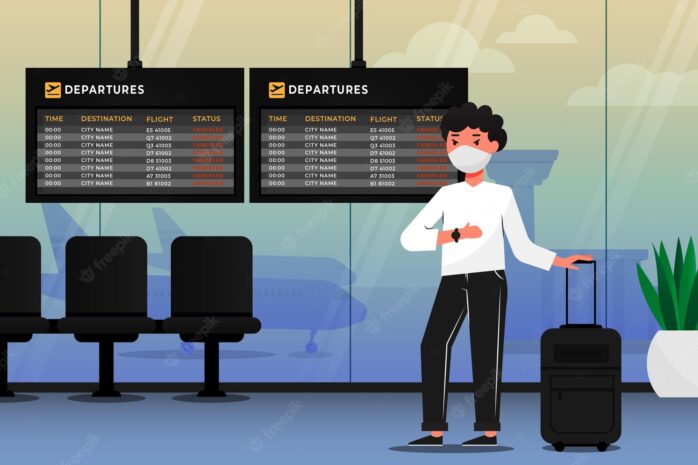
8. Consider buying travel insurance
A credit card probably offers you some protection for canceled flights, so it would be a good idea to always pay for airline tickets with a card. And if you have travel expenses that you do not want to pay in case of flight cancellation or delay, get additional travel insurance that will cover those costs. Insurance can vary greatly from what it actually covers, so double check what it can cover.
Applying these will definitely help you avoid travel complications, but we have another piece of advice that will come in handy, especially in times like we live today.
Learn about the regulations that work in your favor…
Assuming that you will probably be most satisfied in the airline gives you back your money; you should be aware of the EU 261/2004 Regulation. According to it, you have the right to compensation should your flight ever get disrupted. It applies to delayed flights, canceled flights, or denied boarding due to overbooking. Under this law, you may be entitled to some form of compensation, up to €250, for any inconvenience caused.
However, there are some eligibility criteria, as you may have guessed. They include criteria such as flying from an EU-based airport, an airline failing to inform you about the delay at least two weeks before the departure date, a ticket booked with an airline that has an EU-based HQ, etc. Depending on your case, you can be entitled either to a full or partial refund. Having a regulation like this to count on is definitely something worth studying more about, so make sure you do so if you’re in the EU. If not, following what we have suggested in the first half of the article will be enough to keep you safe from delays and cancelations.











